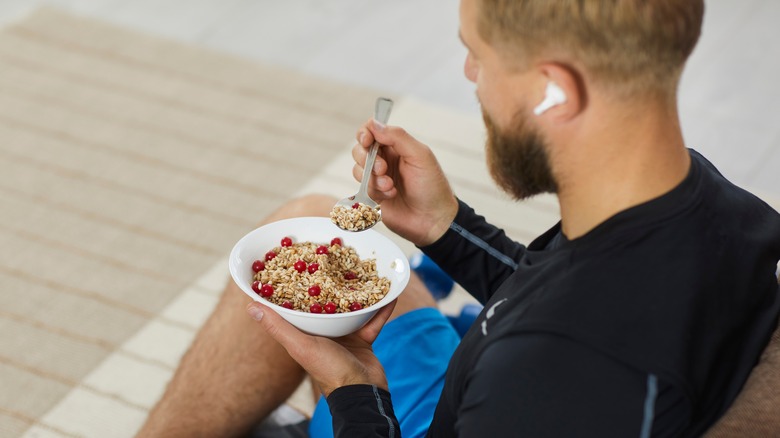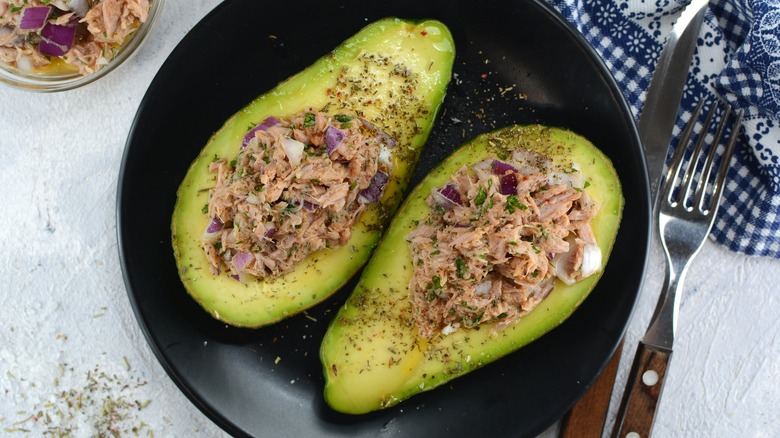Why A High Protein Diet Could Spell Constipation Trouble For You
A quick trip through any diet aisle of the grocery store will give you the feeling that carbs are bad and protein is good. Diets such as Atkins, The Zone, or South Beach have touted the benefits of more protein for weight loss. According to Healthline, adding more protein to your diet can reduce cravings and help you feel more full, so you're less likely to eat as many calories. High-protein diets also boost your metabolism and help regulate the hormones that affect your appetite. Many people on diets will lose a bit of muscle, but you're less likely to do so on a high-protein diet. Protein also requires more energy to digest compared to carbs or fat.
As with any diet, high-protein diets have some drawbacks, according to the Mayo Clinic. If you're getting a lot of your protein from red or processed meats, you could be adding a significant amount of fat that can increase your risk of heart disease and elevate your cholesterol levels. Your kidneys might not like your high-protein diet because they have to work harder to break down the waste from the excess protein. A high-protein diet might also leave you constipated because you might be sacrificing fiber from carbs for protein.
How fiber works to keep you regular
Unfortunately, you won't find fiber in the animal protein sources of a high-protein diet. Fiber is found in fruits, vegetables, and whole grains, which are often shunned in many low-carb diets. According to Healthline, two types of fiber help regulate your digestive system. Soluble fiber, which is found in citrus fruits, oats, and beans, absorbs water in your digestive tract to make your stool easier to pass. You'll find insoluble fiber in whole grains, seeds, and nuts. Insoluble fiber adds bulk to your stool and helps keep you regular.
Many types of fiber serve as prebiotics to feed the bacteria in your gut. The good bacteria in your gut ferment the fiber to improve your gut health. This fermentation also reduces the ability of harmful bacteria to cause illness. Fiber can also reduce your risk of colon cancer. Because fiber helps shuttle waste through your digestive system, you'll reduce your risk of inflammation and infection from diverticulitis (via WebMD).
Adding fiber to a high-protein diet
Rather than suffer through constipation on a high-protein diet, you can add a little more fiber by including legumes, nuts, fruits, and vegetables in your meals. If you're concerned about adding too many carbs, many low-carb foods are also high in fiber. Two tablespoons of chia seeds have just 12 grams of carbs and 10 grams of fiber. Collard greens have 4 grams of fiber and 4 grams of carbs in a one-cup serving. Just a third of an avocado will give you heart-healthy fat while adding 4 grams of fiber and just 5 grams of carbs (via Prevention).
If you're experiencing constipation, you should aim for at least 25 grams of fiber a day (via Runner's World). However, you'll need to gradually increase your fiber intake to avoid side effects such as gas, bloating, or diarrhea. You'll also want to drink plenty of water while eating fiber to avoid more constipation.



